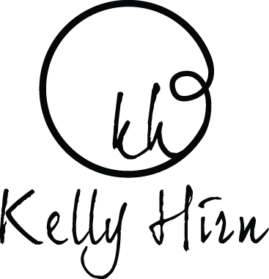Have you ever tried to be the expert at something? Have you put in the hours to learn the craft, the effort to truly understand and improve, and risk your ego by either competing or reaching out for help to bring you beyond where you can go on your own? It takes a lot to become an expert, months, years, sometimes a lifetime to truly hone a skill to the point of expert status. What are you an expert at?
If I’m being honest, I am an expert at nothing really. I work very hard to improve in many areas of my life but I’m typically not willing to expend the time and effort needed to get to the level of mastery. This is true in things from my garden, running, biking, presentations, or in understanding big data. It is not a complaint or a ‘race to the bottom’ type statement. I truly value balance in life and if I’m chasing expert status in different areas that pulls me far away from the other areas that I also want to focus in. There is one area in which I do strive for expertise, and that is development. I want to be an expert in self-development, in developing my children, and in developing those I work with. Every single moment can be a teaching moment, and something can be gleaned from every interaction. I want myself, and everyone around me to be growing at all times. It is this ebb and flow of stepping back from expert status in all areas of life but development that brings me to a question I get frequently, how can I lead people in ____ when they know more about it than I do?

Well friend, I can tell you that it is possible to lead in the absence of expertise or even complete information and do it exceedingly well. The focus needs to shift however, let’s do a little bit of a tale of two managers. We’ll use managers Expert Ellen and Big Picture Brenda as examples for this one. Both Ellen and Brenda started managing teams at the same time. Ellen had been doing the same work of those she was leading for many years and transitioning into the leadership role was somewhat seamless because her staff had the respect and understanding that she too knew the work and knew what they were going through. Brenda on the other hand came into her role with no prior knowledge of the work and what the team actually did daily. She understood the overall purpose of what her new team was doing and how it fit into the company structure but none of the logistics. For that reason, her transition was a bit more difficult in the beginning. The team didn’t trust that she could relate to their workload or help them through any issues. They would test her knowledge and abilities whenever they had the chance. After a few months of working in their new roles Brenda and Ellen were faced with a major change in the organization and they would need to lead their teams through it. They would see turn over, hiring freezes, the need to do more work with less people, and improve metrics at the same time. As things started Ellen made some changes within the team, shuffling tasks, keeping the team shielded from the changes that were happening. Ellen was sure she could weather this storm herself while allowing her team to simply focus on the work. Brenda on the other hand didn’t know enough about the work to simply make changes, she set up a series of meetings with the team to discuss changes and encouraged them to create solutions. Brenda involved the team from the beginning because she knew she needed them. She provided the structure and a support and they provided the ideas and tested them.

After reading that, which manager provided better leadership to their team? I would say, at this point in the ‘story’ both are doing well. They each have a strategy based on their skills and talents that will support their team at this juncture. However, one is limiting and one is expanding. One allows the manager to stay in control for a time but will likely expand beyond her control in the future. The other allows the manager build and develop their team in problem solving while developing their own knowledge base in the day-to-day tasks of the group. Ellen will feel secure and like she has cared for her team well while building confidence in her own problem solving and again, will be successful if this is all the further the changes need to go. However Brenda is set up for success if future changes continue because she has built buy in from the team, created a collective sense of ‘we can figure this out’, and will have a better sense of her team’s strengths and weaknesses when it comes to the soft-skills or human skills that her team possesses.
I think you can tell which type of leader I would strive to be. If I can focus on developing skills for myself and my team, I am one happy camper. Both styles have merit and value but only one will allow for continued individual growth and collective support. Even when you have the technical expertise of Ellen, challenge yourself to utilize the structure of support to empower the team like Brenda.
